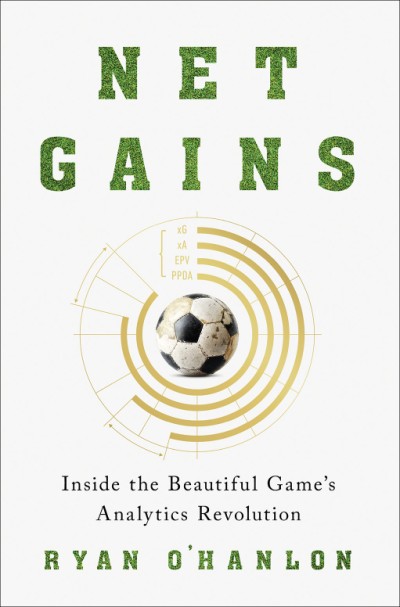
Net Gains
This book really wants you to think it is an airport bookstore book: vague handwaves about "digital transformation" and analytics and a mix of rigorous analysis and charming anecdotes that, in true Gladwellian fashion, are just convincing and propulsive enough to get you to finish the book and feel accomplished but not so convincing that you'll actually change your understanding of the world — or of football.
All of those things may be true! It certainly fits that archetype. But I really admired this book; it did not try to advance one grand unified theory of football and analytics, but instead tries to tell a couple unrelated stories about how analytics has changed specific firms and individuals, and largely leaves the reader to draw their own conclusions about what the gestalt really is. This strikes me as fundamentally honest in a way this genre of book rarely is: O'Hanlon is a storyteller first and a prognosticator second.
Three particularly salient points that have been festering in my mind since I finished the book a month ago:
- A huge amount of personal and knowledge capital was built on the vanguard of blogging! A lot of recent advancements came from people just bopping around on Blogspot or whatever, advancing and refining theories over time.
- The thing that makes football particularly difficult to model is the enormity of its state space — unlike football or basketball or baseball, that can be broken down into discrete plays or situations, at any given point a football match requires a lot of tremendous amount of information to accurately portray.
- Despite the above, there's a non-trivial amount of value to be gleaned from applying analytics and data-driven decision-making to individual choices and microsituations like setpieces. Even if those don't change the totality of the game, they can make appreciable impacts on overall performance.
It seems silly to say this out loud, but: one useful heuristic of how important a book is to you is the degree to which it makes you question your life choices. I finished this book and seriously spent two weeks thinking about how poorly-analyzed the field of software engineering is, and how much merit and value there was in my dropping everything to dedicate my life's work to software engineering analytics.
I'm probably not going to do that, but it's a thought that's been on my mind.
© 2023 Justin Duke • I hope you're wearing your favorite sweater.